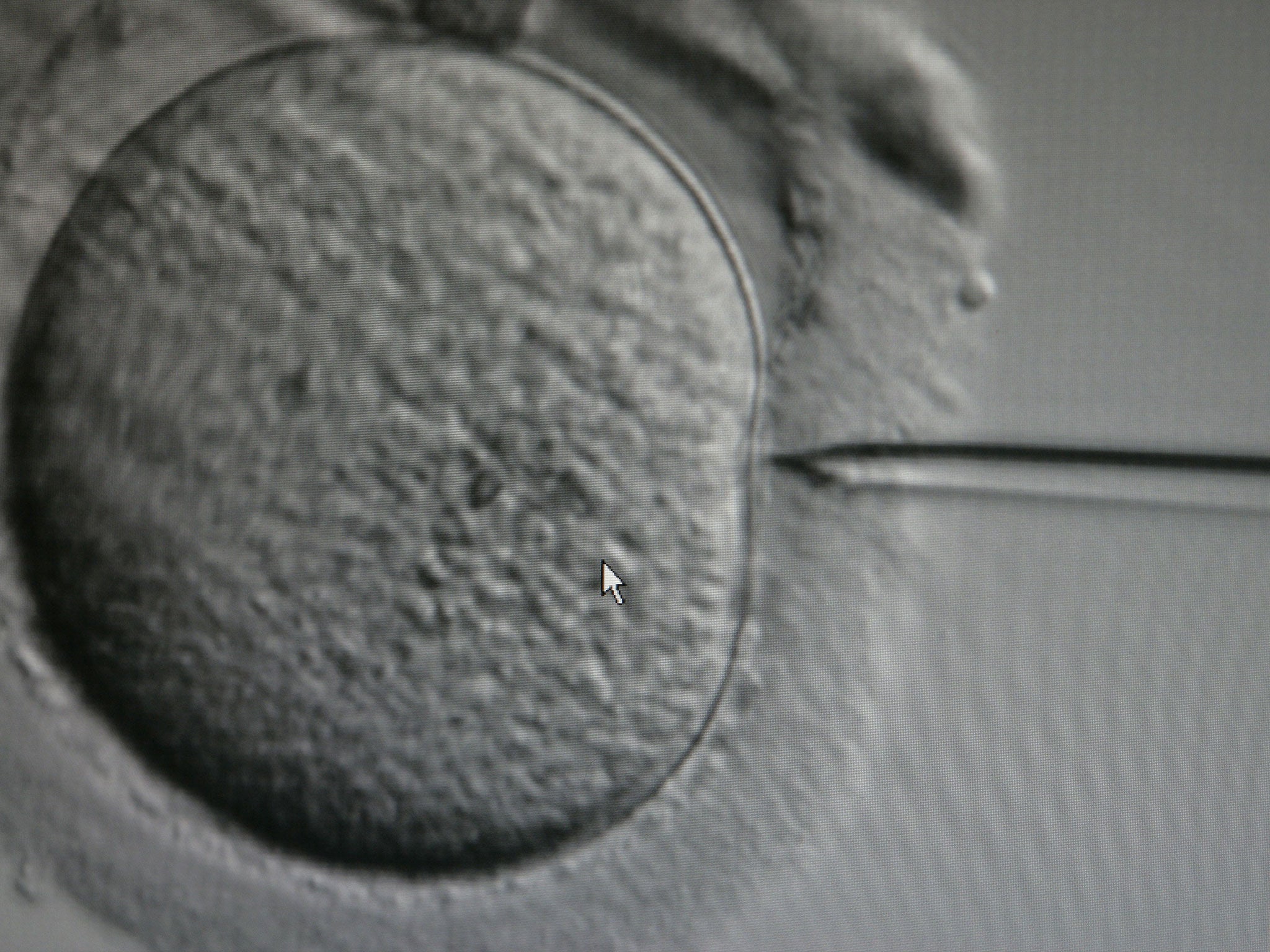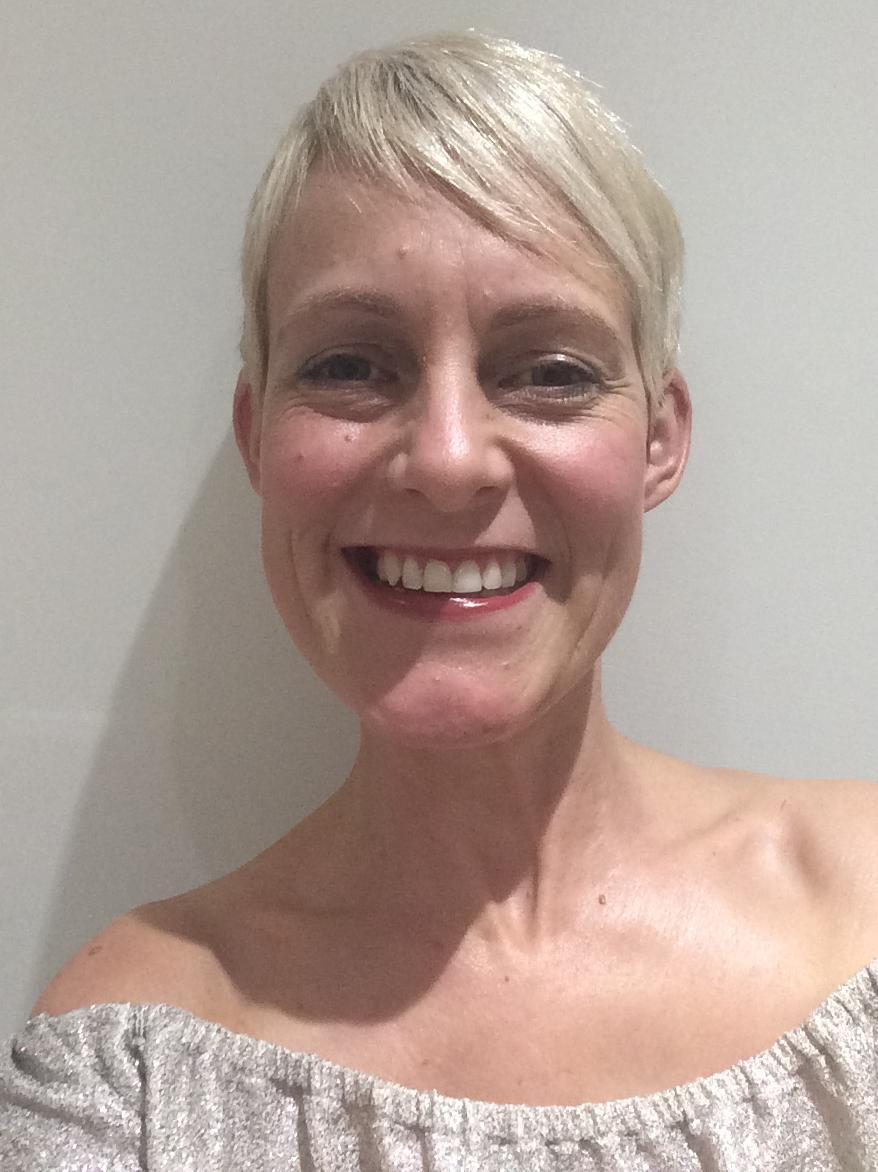Vulnerable would-be parents being sold 'false hope' by overseas IVF clinics, regulator warns
'If someone sat me down at the beginning and said these are the facts and figures you’ve left it too late, I wouldn't have done it'

Your support helps us to tell the story
From reproductive rights to climate change to Big Tech, The Independent is on the ground when the story is developing. Whether it's investigating the financials of Elon Musk's pro-Trump PAC or producing our latest documentary, 'The A Word', which shines a light on the American women fighting for reproductive rights, we know how important it is to parse out the facts from the messaging.
At such a critical moment in US history, we need reporters on the ground. Your donation allows us to keep sending journalists to speak to both sides of the story.
The Independent is trusted by Americans across the entire political spectrum. And unlike many other quality news outlets, we choose not to lock Americans out of our reporting and analysis with paywalls. We believe quality journalism should be available to everyone, paid for by those who can afford it.
Your support makes all the difference.People hoping to be parents in the UK are being sold “false hope” by foreign IVF clinics claiming success rates as high as 98 per cent based on highly selective data, the national fertility regulator has warned.
These clinics are exhibiting at UK events for couples considering fertility treatment and making claims that no UK IVF provider would be allowed to make, said Sally Cheshire, chair of the Human Fertilisation and Embryology Authority (HFEA).
The regulator said it was powerless to regulate overseas clinics, while fertility experts said some clinics are capitalising on the hopes of vulnerable people and could be dangerous if they led with these inflated claims of success.
HFEA data on UK clinics in 2016 shows that for women under the age of 35 – who have the best odds of getting pregnant through IVF – on average each round of embryo implantation has just a 32.5 per cent chance.
But one Cyprus clinic, part of the international fertility group Bahceci, says on its website: “We have up to 97.82 per cent pregnancy rates thanks to the cutting-edge tests, available in Bahceci in Cyprus.”
Others, such as the IVF-Cube clinic in Prague, specify a “cumulative success rate” after one or more embryo transfers of more than 84 per cent.
This comes as cash-squeezed NHS groups have been cutting back on the number of cycles of IVF they will offer women.
Just 12 per cent of NHS clinical commissioning groups offer the recommended number of cycles – many in Essex, for example, offer none – and this is pushing more women to go overseas where treatment is half the price.
Kate, who asked not to have her last name included, is now 44 and started fertility treatment by freezing her eggs when she turned 40 but was unsuccessful; she later tried IVF with a donor embryo at a clinic in Spain on the recommendations of a UK doctor.
She told The Independent: “When I went to Barcelona, to try with a donor embryo, I was given a 40 or 50 per cent chance.
“That’s quite a high figure – if you’re given that, you’re going to go with it and I didn’t want to look back and have any regrets.”
Data from the HFEA suggests that in the UK average birth rates using a donor embryo are around 25 per cent.
The average IVF pregnancy rates for women over 40 using their own eggs in the UK, according to HFEA, are just 14 per cent.
Though these figures do not account for the fertility of the individual and the skill of the clinic, the HFEA says that techniques in use around the world now are broadly similar and have broadly similar success.

“I look back and I was quite naïve, I was given lots of information but none made it abundantly clear how low the chances were,” Kate said.
“You are in the clinic’s hands really. You so want everything to work out for you that you will kind of hear what you want to hear and believe what they tell you.
“You need to be given really stark information, that this is the reality of getting pregnant.
“If someone sat me down at the beginning and said ‘this is the stark reality of it all, these are the facts and figures you’ve left it too late’ before the amount of emotional stress and the money I’ve spent, I may have made a different choice.”
Kate said that the clinics need to be much more transparent, but equally that there needed to be more support from them and the NHS when IVF does not work.
Jayne, from Yorkshire, who also did not want to include her full name, told The Independent that success rates were a factor, but accessing treatment quickly was the reason they had gone and they were successful with IVF in Greece.
“I did read into success rates and, yes, these were a factor but more important to us was how the clinic worked, other success stories, other people’s experiences,” she said.
“People who are sadly needing fertility treatment do become ‘experts’ and will read around before jumping into treatment but, equally, we are desperate for success and will consider trying many things.”
A joint survey by the patient charity Fertility Network UK and Fertility Clinics Abroad found 44 per cent of respondents had been abroad but 93 per cent would consider that option. Half of these respondents said they believed success rates were higher overseas.
In the UK clinics are inspected by the HFEA against its code of practice, which specifically says they should “not highlight a high success rate that applies only to a small, selected group of patients” on their websites.
But they can't enforce this against visiting centres from overseas
“I was at the Fertility Show in Manchester a couple of weeks ago where clinics were advertising selective 98 per cent success rates,” Sally Cheshire said at an event by the Progress Educational Trust this week.
“I challenged every single clinic whose stall I went round, and they said ‘oh you know, it’s selective data’.”
Prof Adam Balen, professor of reproductive medicine and surgery at Leeds Teaching Hospitals and former chair of the British Fertility Society, told The Independent: “I think these shows are dangerous and misleading to the public, and a particularly vulnerable group.
While the shows were important information sources for couples, he said he was “appalled” by some of the claims at Manchester, adding: “There’s absolutely no way that a clinic can have a success rate of 90 per cent; even 60-70 per cent”.
In the UK the success rates of top clinics vary by just a few percentage points, and Professor Balen said he – in conjunction with other groups – is looking at setting up an alternative event for patients where overseas clinics could be vetted.
“We’re also doing our utmost to get rid of the NHS funding postcode lottery,” Prof Balen added. “So there’s less need for people to look elsewhere and be seduced by promises and false hope into going overseas.”
A snapshot survey of websites for clinics in Cyprus, the Czech Republic and Spain that exhibited at the show last month found many claiming “success rates” that were three or four times higher than the UK average.
This includes Bahceci and IVF Cube, though the latter says it only provided leaflets and did not have a stand or attend the show.
These claims do not always clearly specify the age of the women undergoing IVF, the technique used or how many cycles of embryo implantation they go through before a successful pregnancy.
Ms Cheshire said that the HFEA would also be looking at the claims on UK clinic websites although these are “absolutely not in the same category” as those overseas.
At the same event the president of the Royal College of Obstetricians and Gynaecologists, Professor Lesley Regan, also warned UK clinics are not immune from using people’s desires to start a family to get them to part with thousands of pounds.
“I see women and men come in who have been given shoeboxes full of add-on therapies, and have spent thousands and thousands of pounds on non-evidence based treatments.
“I think [they] are effectively bullied into taking these by many clinics who say, well if you don’t do what we say we can’t guarantee the results.
A warning last year by academics and regulators said expensive and potentially harmful drugs were being given out “like Smarties”.
A spokesperson for IVF Cube said its results are validated every six months, and it offers services at a much more competitive price than the UK with “no hidden extras”.
“We do not sell false hope. Our 84 per cent success rate is based on the number of women who have become pregnant from a single egg collection, which can include up to 10-11 eggs. This is clearly stated on our website,” they added.
Laura Biggs, managing director of the UK Fertility Show, said: “We have not been made aware of any specific concerns about the show, but would of course not condone giving anyone ‘false hope’ and are keen to work closely with the HFEA to ensure all information given is clear and consistent.
“The Fertility Show is committed to providing credible and accurate information on all areas of fertility and, as such, we regularly review the editorial and exhibitor programme.”
A spokesperson for Bahceci said: "Regarding our success rate, please note that this figure is the cumulative pregnancy rate after three subsequent treatment cycles of egg or embryo donation, as mentioned on the website and on our leaflets present at the Fertility Show.
They added that these were success rates of "up to" 97.82 per cent, and that live birth rates were usually 10 per cent lower than the pregnancy success rate of any given clinic.
Join our commenting forum
Join thought-provoking conversations, follow other Independent readers and see their replies
Comments